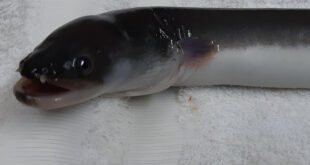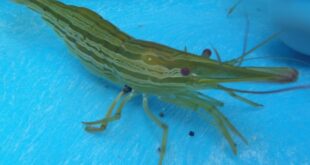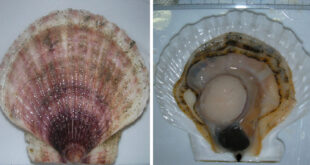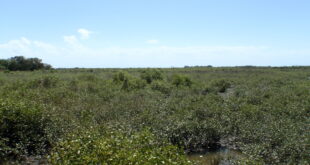
Fishfarmers can protect their stocks from disease outbreaks by practicing good aquaculture management. This was the message of the International workshop on fish health management held 1-2 March 2012 in Iloilo City, Philippines. The workshop was organized by AQD with funding from the GOJ-Trust Fund. Total of 222 participants comprised of scientists, researchers and industry stakeholders attended at the workshop.
Aquatic animal diseases are huge problems that are hindering aquaculture production. In China alone, around $1 billion is lost yearly to fish diseases.
SEAFDEC Secretary General Dr. Chumnarn Pongsri noted that the heavy use of chemicals and drugs in aquaculture is a non-sustainable answer to diseases. “Avoid unnecessary use of these drugs, and apply proper withdrawal periods of antibiotics to help keep aquaculture products safe for consumers,” he advised.
Fish vaccination is an option to control diseases, and has been introduced in countries like Indonesia and Philippines. This can prevent the occurrence of potential diseases like streptococcosis, koi herpes virus, and vibriosis. At AQD, vaccines against viral nervous necrosis in pompano, grouper and seabass have been developed.
Other innovative approaches such as RNA interference for silencing gene expressions in viruses, use of lectins to boost the fish immune response, and aptamer technology were also discussed during the workshop. Lectins from some teleosts, for example, are said to be good biomarkers in innate immunity for fish health management. Aptamers on the other hand have the ability to bind to fish viruses; thus, can be used to prevent unwarranted outbreaks of viral diseases.
The workshop also emphasized the need for an enhanced regulation and better monitoring of diseases in accordance with the protocols of the OIE (Office International des Epizooties). Disease reporting is necessary so that countries can provide online reports and access diseases of regional concern.
Workshop participants also identified the gaps on fish health management particularly in accelerating awareness and innovative research for fish pathogens. One of the problems highlighted by Lao PDR and Myanmar was the absence of laboratory facilities capable of performing molecular, histological, and microbial methods to detect pathogens. And in countries like Malaysia, Philippines, Thailand, and Cambodia, there is lack of fish health experts or qualified fish pathologists. The workshop recommends capacity-building activities such as intensive hands-on training on fish pathology; continuous collaboration with relevant agencies; and information sharing to improve fish health management, food security, and aquaculture sustainability.



 SEAFDEC/AQD Southeast Asian Fisheries Development Center | Aquaculture Department
SEAFDEC/AQD Southeast Asian Fisheries Development Center | Aquaculture Department



